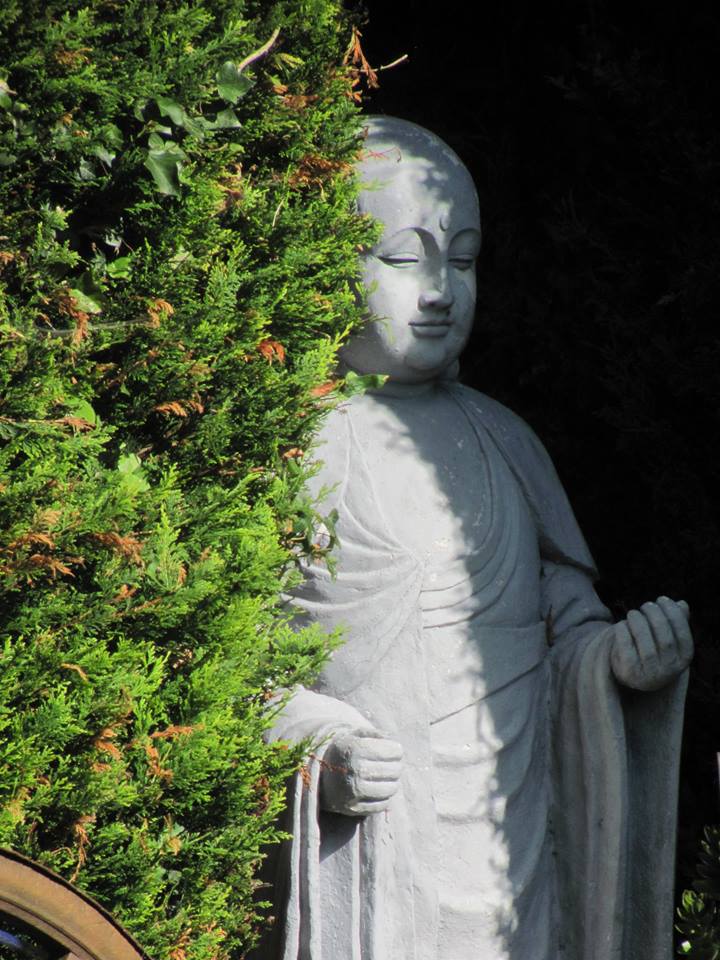I don’t believe in God, or an afterlife, or alternative realities, so can I still be spiritual? If such notions are not spirituality itself but merely its outer trimmings, then I can. Surely, spirituality is something deeper than a mere set of beliefs.
When I was eighteen, I joined an authoritarian religious community. This ruined my closest relationships and cost me both my opportunity to get an education and my chance to develop a solid skill set. I became very religious, but at some point I realized that the religious community I belonged to was deceitful and exploitative. I stopped praying. I stopped because I realized that the God I was praying to was a God that I had been taught to believe in by the community, and especially by the charismatic figure who had founded it; a man who I had gradually come to realize was a charlatan.
It took me a few years to become thoroughly comfortable with the notion that there was no God and no spiritual reality. Strangely enough, life went on much as before. I found that I still had to make moral decisions even without a God. I tended to make the same decisions as before too because the removal of God made no difference to my ethical obligations toward others.
Once I had given up completely on religion and saw little point to it, other than for some of the social functions it serves in our society, I became less bothered by it. I knew there was no chance that I would ever let religion injure me again.
Meditation without transcendence
One day, a friend posted a YouTube video about mindfulness to Facebook. I watched it with the intention of making a sarcastic remark but I became intrigued instead. I went on to watch a number of videos, read some books, and even take an online course. I realized that mindfulness offers a way to enhance life’s pleasures and to alleviate its sufferings. That’s something most of us are looking for, religious or not.
Although mindfulness developed within the Hindu and Buddhist traditions, I think it can be a more helpful psychological tool when prised away from its origins. I take its three central pillars to be presence, non-attachment and acceptance. These three are closely intertwined. There’s not space to properly explain them here, so I’ve provided links.
My mindfulness practice takes the form of mini-meditations that are rarely longer than ten minutes. I let my mind settle and be still. It is like waiting for the flakes to settle after a snowglobe has been shaken up. Once my focus is set on the immediate moment, I am simply observing; being. To merely be is itself a pleasant experience. I don’t try to transcend reality: transcendence is the problem, not the solution. As I allow my mind to be still, the gradual settling of thought and emotion allows the unconscious aspect of the mind to work. When the conscious mind is quieted, the unconscious aspect of the mind is able to come to the fore and the imagination is set free. Inspiration comes and fresh insight emerges.
My simplest meditation takes about thirty seconds. I just observe three consecutive breaths without trying to control them in any way. I just let them come and go, like the waves breaking onto the seashore. I re-anchor myself in the moment.
God without God
Listening to the unconscious mind is very similar to the kind of experience I used to have through prayer. The voice of the unconscious is a sort of God without God. I now accept that what I used to think was God communicating with me was really just my unconscious mind. Occasionally, though, I still feel for a moment that it really is God after all; I let that thought go. I wave the phantom of God on his merry way. I won’t believe anything without evidence, not even if he taps me on the shoulder.
Tools have limitations. Mindfulness is associated with worldviews, both ancient and modern, that I consider superstitious and that sometimes border on solipsism. Why is this focus on the present moment so often accompanied by a paradoxical insistence on eternal life or an attempt to attain some sort of transcendent state? Why do so many “seekers” deny the existence of an individual self? Don’t we all have brains and isn’t every brain is different? Why adhere blindly to ancient doctrines that deny the material world? Why the need for spiritual leaders? We don’t need leaders: it’s 2017 and everything we require is on YouTube.
Mindfulness enhances self-control, which unveils new dimensions of personal freedom, but it cannot teach us how to act, nor can it confer any special insight into the secrets of the universe. Mindfulness is healthiest and most effective when practiced in conjunction with two other crucial principles: the golden rule and the scientific method.
An afterlife without an afterlife
When we accept reality, we can affirm the authenticity
of others. Without doing that, how can we make a better world? Our most
profound moments are moments of connection with another person, moments when we
are struck by the common experience of a “me” and a “you” (what translators of
the philosopher Martin Buber archaically termed I-Thou events). These moments
of direct insight into another’s reality are possible because we have all
inherited a shared consciousness, not an airy-fairy mystical consciousness, but
the seemingly mundane consciousness that we all experience day by day,
the consciousness that unfolds naturally from our DNA. This shared
consciousness is the greatest miracle of all, the one that makes love possible.
There is no need to believe in God or revelation to experience it. This shared
consciousness will persist, long after we’re gone, only it will be experienced
by other minds: an afterlife without an afterlife.


